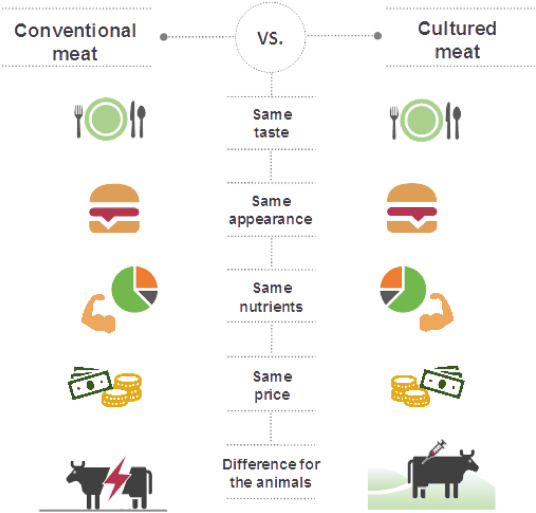With cultured meat now available for purchase in Singapore and more countries expected to follow soon, more and more research has explored the impact of particular individual factors and information provision. To this point, no research has looked explicitly at a counter-messaging approach, whereby problems of conventional meat production are leveraged to make the case for cultured meat. This study employs a 3×1 randomized experimental design with a sample of 302 British adults where participants are provided one of two differently focused counter-messages (animal welfare or environmental impact) or a control text. The study utilizes two repeated measures (before and after information provision) to examine the change in acceptance and investigate related informational effects. Though we find the focus of counter-messaging makes no difference, such an approach does generally promote consumer acceptance. Whereas acceptance of cultured meat is higher among men, younger consumers, and those who eat meat more often, change in acceptance is predicted by perceived consumer effectiveness and, marginally, lack of prior knowledge. By demonstrating the potential of a counter-messaging approach and offering a first examination of determinants of change in acceptance, this research should prove useful for researchers, policymakers, and proponents planning for the ongoing development and marketing of cultured meat.
Are You Ready to Eat Lab-Grown Meat?
The new industry is rocketing forward in response to climate change.









